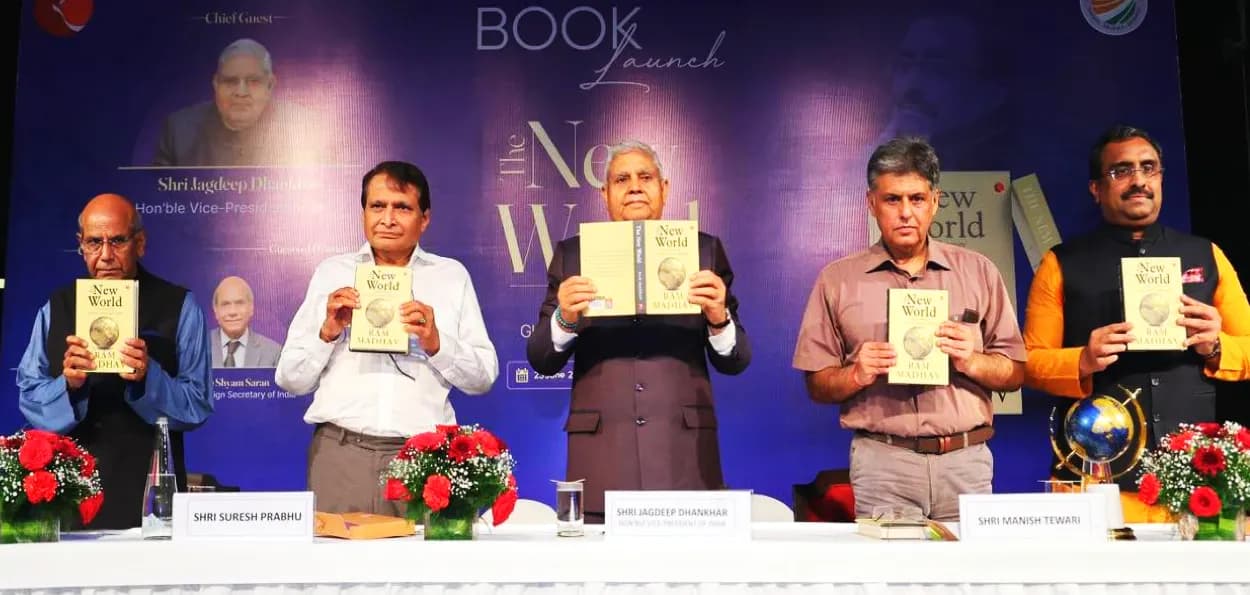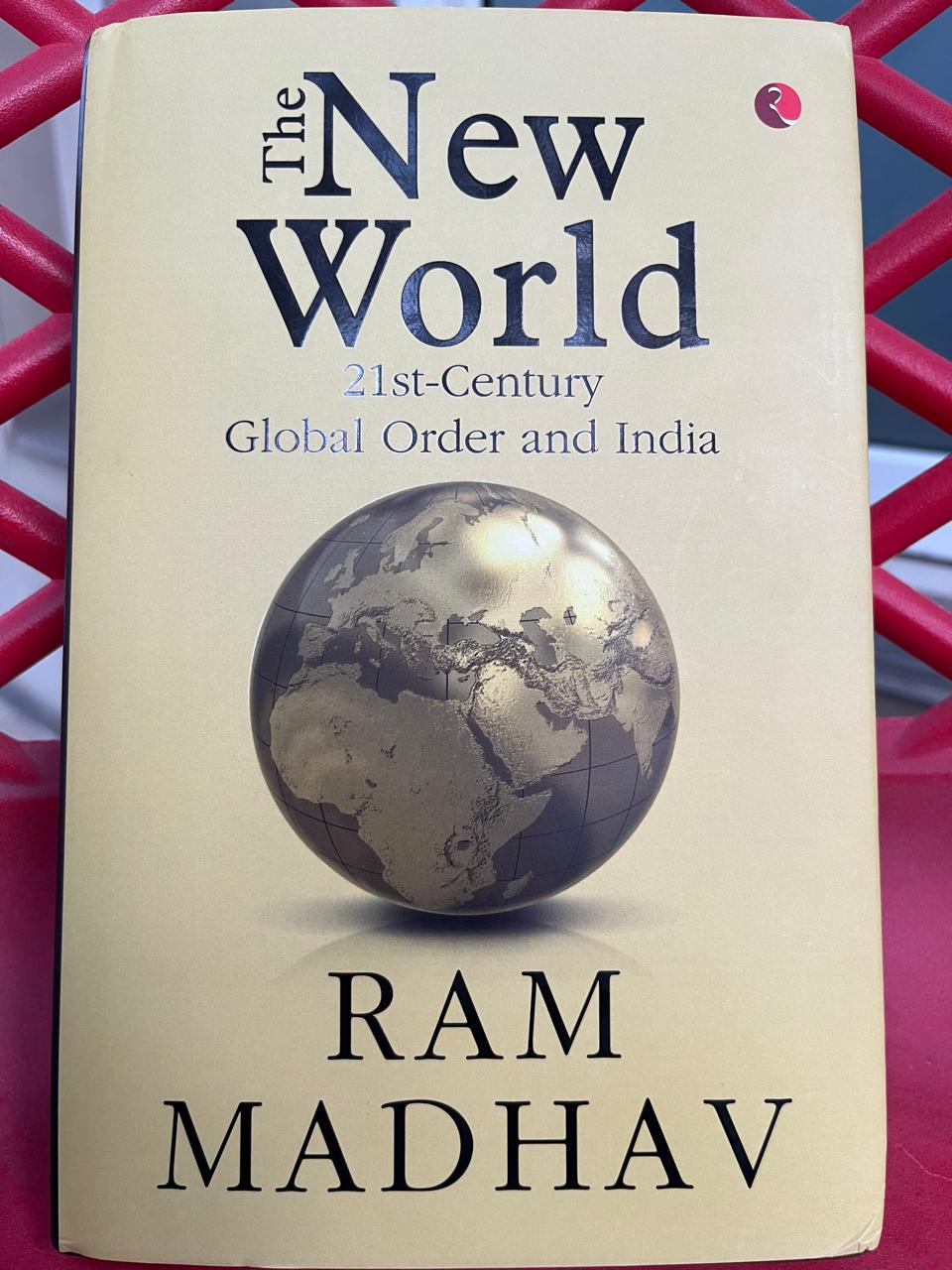.webp)
Atir Khan
We live in the best of times and the worst of times. The world today is a paradox: outwardly satisfying, yet deeply unstable beneath the surface. Global tensions, violent conflicts, and political fragmentation challenge our shared sense of peace and progress.
"Yeh duniya mein kya ho raha hai?"(What’s happening in the world?)
This question haunts us as we watch missiles streak across skies, destroying homes and lives. Whether it's the growing friction between Israel and Iran or other flashpoints across the globe, conflict often overshadows quieter human victories.
Achievements such as better education, improved healthcare, and poverty reduction are relegated to the background and lost in the noise of war and chaos.
History reasserts itself during such moments. The traumas of past wars and the fragile legacy of civilizations remind us of how thin the veneer of peace can be. As the adage goes, the world is only as good—or bad—as we choose to see it.
In today’s geopolitical climate, domination seems to be the rule, with peaceful coexistence reduced to an exception. The pursuit of power—driven by insecurity, mistrust, and material gain—has become a relentless cycle, stifling opportunities for genuine dialogue and collaboration.
Anarchy, or something dangerously close to it, now appears to be the emerging norm in what was once a ‘Western liberal world order.’

Vice President Dhankar (in the center) releasing the book. He is flanked by Manish Tiwari and Ram Madhav ( Right) and Suresh Prabhu and Shyam Saran (left)
This order—crafted in the aftermath of World War II and reinforced at the end of the Cold War—is visibly fraying. So, what comes next? More importantly, what role should India play in shaping the future?
These questions lie at the heart of The New World: 21st Century Global Order and India, a compelling new book by strategic thinker Ram Madhav, often associated with India’s political right. The book offers a timely and nuanced analysis of the evolving global landscape and India’s possible pathways within it.
The book has been widely praised for confronting uncomfortable but necessary questions:
If the Western liberal order is indeed nearing its end, what should replace it? And how can India position itself?
Thinkers like Francis Fukuyama, Samuel Huntington, and Tariq Ali have long debated the roots of global conflict—be it ideology, culture, or religion. Yet, few have proposed a positive vision for a reimaged world order—one rooted in reconciliation, ethics, and mutual respect. Madhav fills that gap.
The next global order must be built on enduring human values, not simply power structures. The mistakes of the past must be acknowledged and corrected.

Civilizational legacies must be preserved—not as relics, but as living traditions that can guide the world toward coexistence, not conquest. In a multi-polar world if a nuclear-armed Iran poses an existential threat so must Pakistan. What’s good for the goose should be good for the gander too. Authoritarianism should be a thing of the past.
In his book, Madhav writes:
“India’s stance has encouraged dozens of countries to refuse to take sides in conflict and remain neutral in the UN—much to the chagrin of Western powers.”
This refusal to be co-opted into power blocs marks a quiet but powerful diplomatic shift—one that reflects India’s growing confidence on the global stage.
At the book’s launch, Madhav emphasized the need to construct a bold and forward-looking national narrative—what he calls "Brand Bharat." This is not mere image-building but a deeper call for India to redefine its role in an increasingly fragmented world.
Today, private corporations wield influence rivaling that of many governments. Conservatism is resurging globally, and non-state actors have assumed unprecedented power. In such a world, the old U.S.-dominated framework cannot simply be revived. A multipolar world is not only inevitable—it is already here.
Yet, Madhav cautions against a simplistic view of multipolarity.
“There’s a fundamental flaw in assuming that all poles must possess equal power. Different nations bring different strengths—and sometimes, those asymmetries can render even traditional superpowers ineffective.”
India, he suggests, must not seek parity for its own sake, but leadership through moral governance—what he calls “Dharmacracy.” In contrast to the procedural rigidity of Western bureaucracies, Dharmacracy is about doing what is right—anchoring governance in ethical and civilizational values.
Vice President Jagdeep Dhankhar, speaking at the book launch, echoed this sentiment:
“The book reflects on the liberal order and the identity India must preserve. The rise of Bharat is benign and harmful to none. We have proven ourselves to be a force for good.”
Spanning 14 chapters, The New World outlines a comprehensive framework for India’s place in this evolving global order—covering geopolitical strategy, economic resilience, environmental responsibility, and societal transformation.
In a time of global disarray, Madhav reminds us that it is not only policies or power that shape the future—but principles. His message is clear: without a moral compass, nations are rudderless, and the world order, however designed, will always remain unstable.
We are living through a pivotal moment in history. As the old structures crumble, a new global paradigm is struggling to be born. In The New World, Ram Madhav offers not just analysis, but a blueprint—one that calls on India to embrace its moral heritage, assert its unique voice, and help shape a world that values harmony over hegemony.
ALSO READ : From stones to solutions: Wajahat Farooq Bhat’s journey of reshaping Kashmir’s future
In this fractured age, perhaps what we need most is not a new world order—but a new world ethic.
The New World: 21st Century Global Order and India; Ram Madhav;Rupa Publications India, 408 pages
